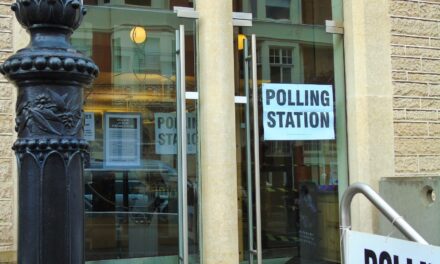Effective January 1, 2006, Medicaid, which provided affordable, reliable prescription coverage for those who were low income ceased to exist. It was replaced by Part D. Due to numerous problems, dual-eligiblity (people who formerly had their prescriptions paid for by Medicaid are often referred to as dual-eligibles or “dualies”), computer errors, non-compliance, payment difficulties, denial and/or the overcharging for prescriptions, and a dishonest legislative process Part D is NOT the success that the Republican party had hoped it to be.
continued
The reason? According to Robert Hayes, of the Medicare Rights Center,, Medicare coverage was identical and universal, regardless of income, and administered by Medicare. And it remains today an efficient single-payer health care system providing hospitalization (Part A) and outpatient physician services (Part B) to 43 million older and disabled Americans. More than 95 percent of patients and doctors participate in the voluntary Part B.
Hayes continued,
“Medicare has become the most popular and successful program of the last 40 years because the president [Lyndon Johnson] believed in the efficacy of government.”
Author Nancy Altman (“The Battle for Social Security”) wrote
Johnson and the Congress relied on professionals in government to design Medicare, President George W. Bush and the Republican leadership disdained government and Part D was written in secret by drug and insurance industry lobbyists, then narrowly passed under cover of darkness.
Interestingly, Medicare was implented in an effective manner before widespread computer use was popular. Part D was enacted in late 2003, which left ample time to prepare for a smooth implementation and operation of it. The main reason for that is the administration’s insistence on choice. That resulted in too many choices and made a simple prescription benefit that could have been added to Medicare coverage more difficult to implement and interpret.
As a result, Part D is now percieved by its supporters as work in progress.
Drew Altman, President of the Kaiser Foundation,
“There’s no question the Republicans thought the passage of (the drug benefit) was their best opportunity in years to neutralize the advantage with senior voters that Democrats have traditionally had on health, and it hasn’t worked out that way at all.”
Now, legislation that is being sponsored by Sens. Chuck Grassley, R-Iowa, Bill Nelson, D-Fla., and others, would provide increase funding to encourage enrollments. In the House, Rep. Nancy Johnson. R-Conn., introduced similar legislation.
A second proposal would decrease the length of time that pharmacists have to wait for reimbursements. And, in April, there an earlier victory: a rule was changed and plans that stop covering drugs or impose new coverage restrictions must exempt from the changes those people already taking the medications.
Altman also cautioned,
“It isn’t emerging as a top voting issue for seniors in this election. Other issues are crowding out health and (the drug benefit) for voters, like Iraq, gas prices and immigration>”
But, it is very possible that will change, as many on a fixed income will begin to hit the coverage gap, or “doughnut hole” and people have to pay their prescription-drug costs from $2,250 to $5,100 before coverage begins again.
In addition, there are the Fix Part D hearings that are scheduled throughout the country.
Fix Part D Hearings Schedule
AZ 6/1 5:00 PM Speakers: Nick Nyhart – Executive Director of Public Campaign
Hope Hall, Grace Lutheran Church, 1124 N 3rd St, Phoenix
CT New Briton
FL 6/1 2:30pm, Palm Harbor Community Center, 1500 16th St., Palm Harbor
IA 6/20 1:00 PM, Waterloo Public Library,Waterloo
IN 6/5 10:00am
Town Hall
North United Methodist Church, 38th and Meridian Streets, Indianapolis6/8 10:00 am
Town Hall
The League for the Blind and Disabled
5821 S. Anthony Blvd.
Fort WayneMD Longbranch Senior Center, Silver Spring
ME 5/31, 10:00 am, Hammond Street Senior Center, Bangor
MN 5/31, 10:00 am, Senate Hearing Room 112, MN State Capitol, St. Paul
MO 5/31, 1:00 pm, Palestin Senior Activity Center
3325 Prospect, Kansas City6/1, 7:30 PM, Daniel Boone Library – Friends Room,
100 W. Broadway, Columbia6/1, 11:00 am, Ferguson Municipal Public Library
35 North Florissant Road, St. LouisNY, 7/10 Saratoga Springs
PA 6/1, 1:30pm, Pennwood Library, 301 S Pine Street, Langhorne
6/2, 1:30pm, Chester County Library – Struble Room
450 Exton Square Parkway, ExtonWA 6/10, 12:00 PM, Part of White House Conference on Aging
Seattle Labor Temple – Main Hall, 2800 First Ave.
SeattleWI 6/2, Paper Valley Hotel, 333 W College Ave, Appleton
WV 5/31, 3:00 PM Panel:
State Rep Don Perdue – Chair of House Heath & Human Resources
Larry Matheney – WV AFL-CIO Sec/Treasurer
Gary Zuckett – WVCAGCross Lanes Unity Apts, 101 Unity Lane, Cross Lanes
In addition, Americans United is advocating for the following changes to Part D: allowing for the negotiation for the best price of presciption drugs, the closing of the “donut hole”/coverage gap, allowing to give people who have Part D the option of receiving their prescriptions through Medicare, as opposed to a private insurer, prohibiting insurers from dropping a drug from the formulary (list of covered drugs) if people are prohibited from changing plans, and re-opening the enrollment period.
In addition, almost every Medicare advocate requests that it is necessary to stop trying to make a silk purse out of sow’s ear and add a uniform drug benefit to Medicare that would be administered by Medicare. (That would be the most logical and easiest thing to do.)
But, as written earlier, the AARP sells the UnitedHealth plan and receives an undisclosed amount in royalties for doing so. Is it a suprise that the AARP has not taken a stand re: fixing Part D?
Considering that Americans United was the one of the major players in winning the battle against Social Security Privatization a few years ago, it will definitely be an interesting summer.






